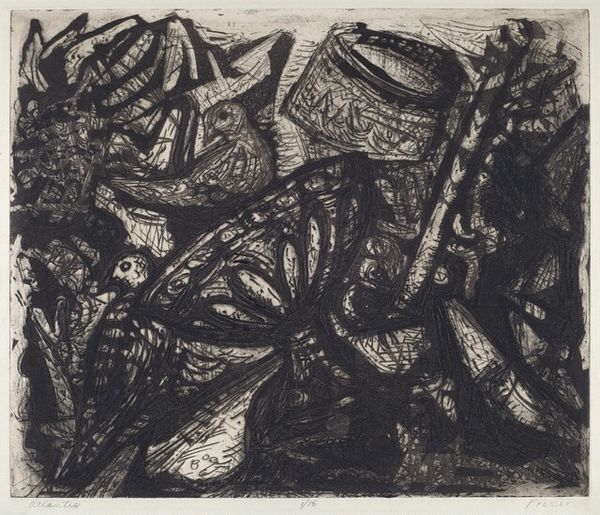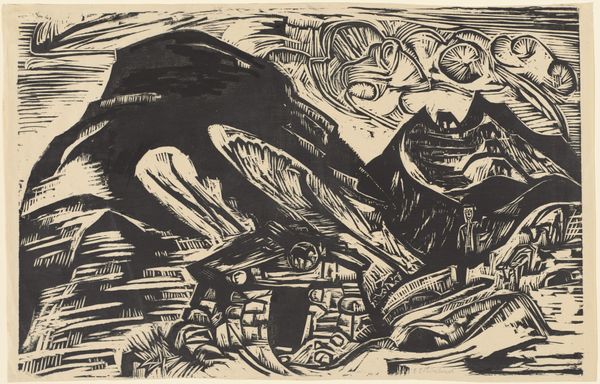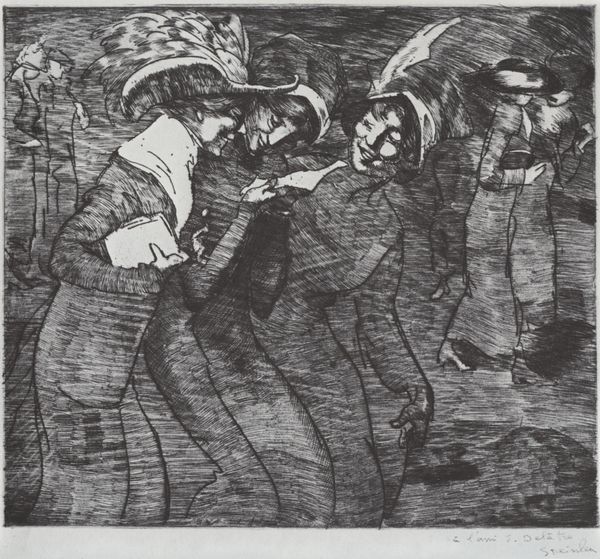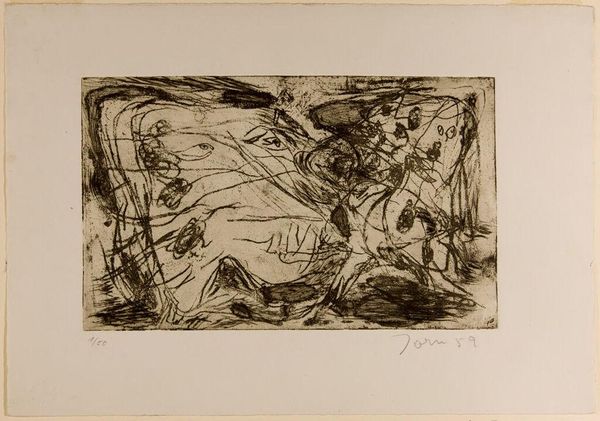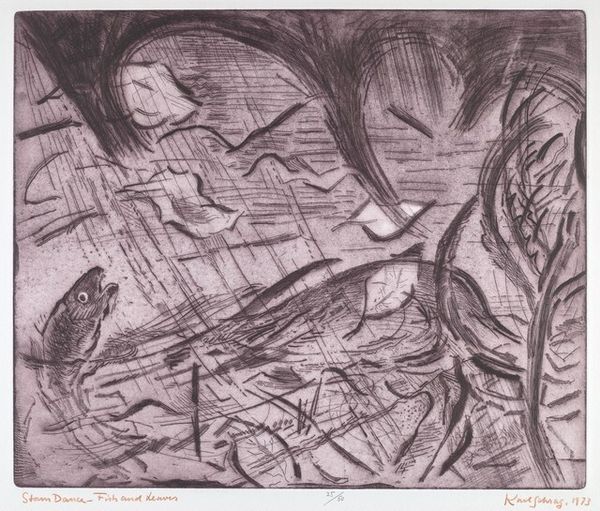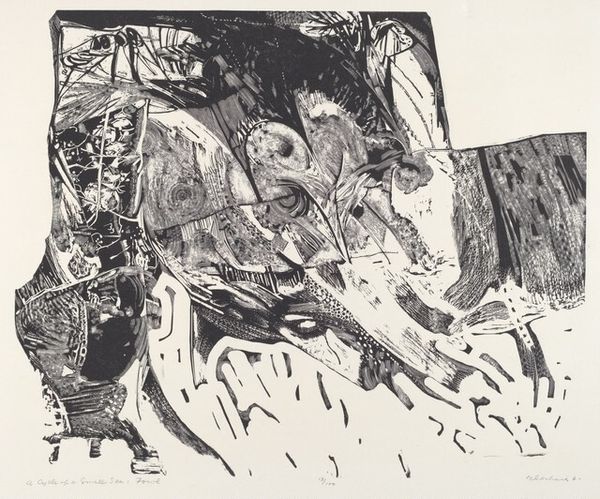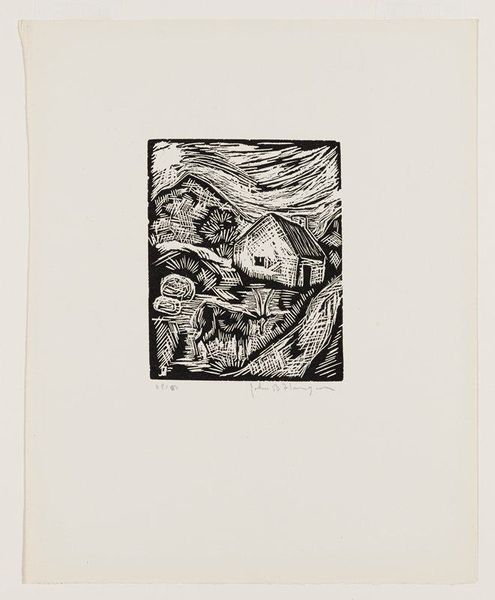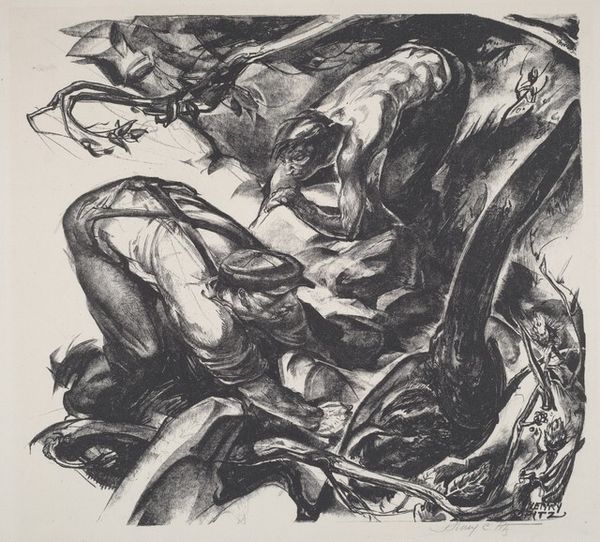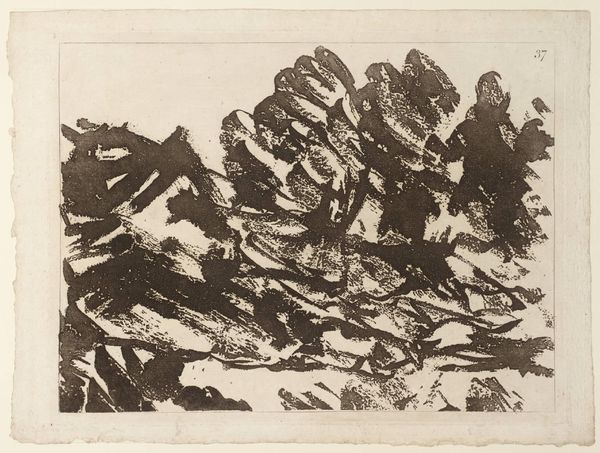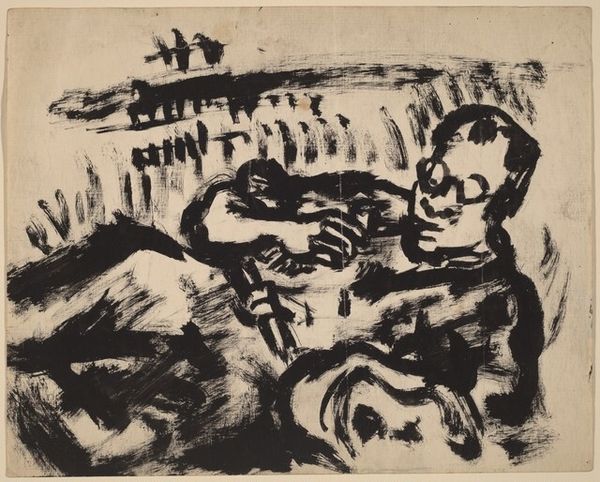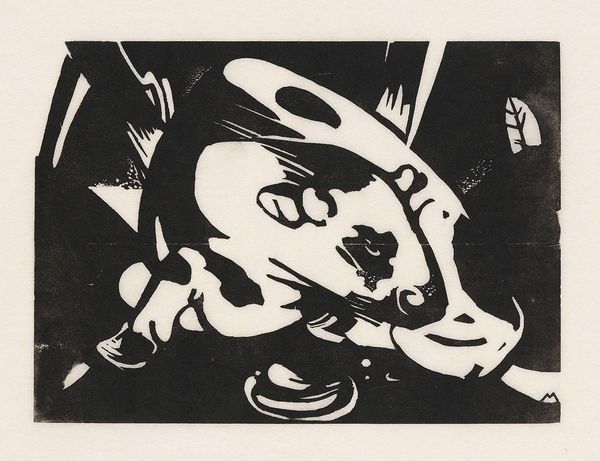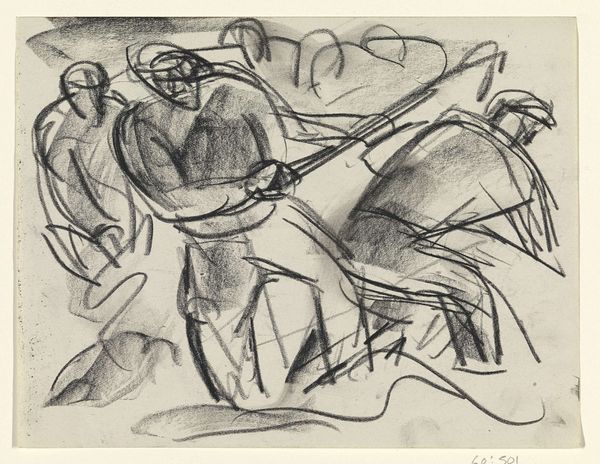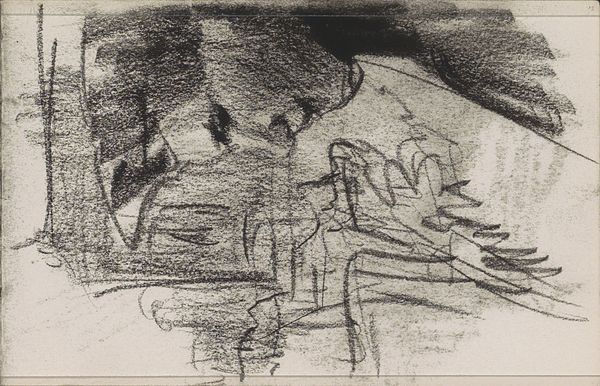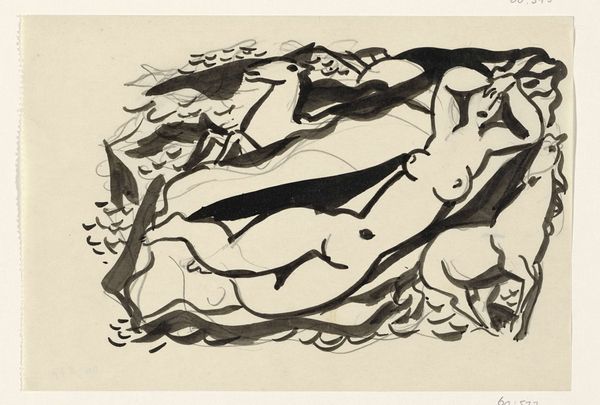
And I am dumb to tell the crooked rose my youth is bent by the same wintry fever 1965
0:00
0:00
Dimensions: image: 457 x 631 mm
Copyright: © The estate of Ceri Richards. All Rights Reserved, DACS 2014 | CC-BY-NC-ND 4.0 DEED, Photo: Tate
Curator: Ceri Richards' lithograph, "And I am dumb to tell the crooked rose my youth is bent by the same wintry fever," presents a starkly contrasting scene. What's your initial take? Editor: It feels very raw, almost unfinished. The bold blacks and whites give it a powerful, immediate presence. I'm curious about the printing process. Curator: Indeed. The rose, traditionally a symbol of beauty and love, is here "crooked," hinting at decay and perhaps the loss of innocence. Note how it intertwines with the female figure. Editor: That contrast is key. The figure seems almost consumed by the rose and the landscape—are they lithographic crayon or tusche washes? The textures are quite varied. Curator: Likely both. Consider how Richards, deeply influenced by poetry, uses these symbols to explore themes of mortality and beauty’s fleeting nature, echoing the poem it's named after. Editor: The title adds another layer. It’s a powerful statement about aging and disillusionment, perfectly captured in the materiality of the print itself with all its imperfections. Curator: Precisely. It's a reminder that beauty and decay are often intertwined. Editor: A thought-provoking print, successfully using its medium to express complex emotions about time and transience.
